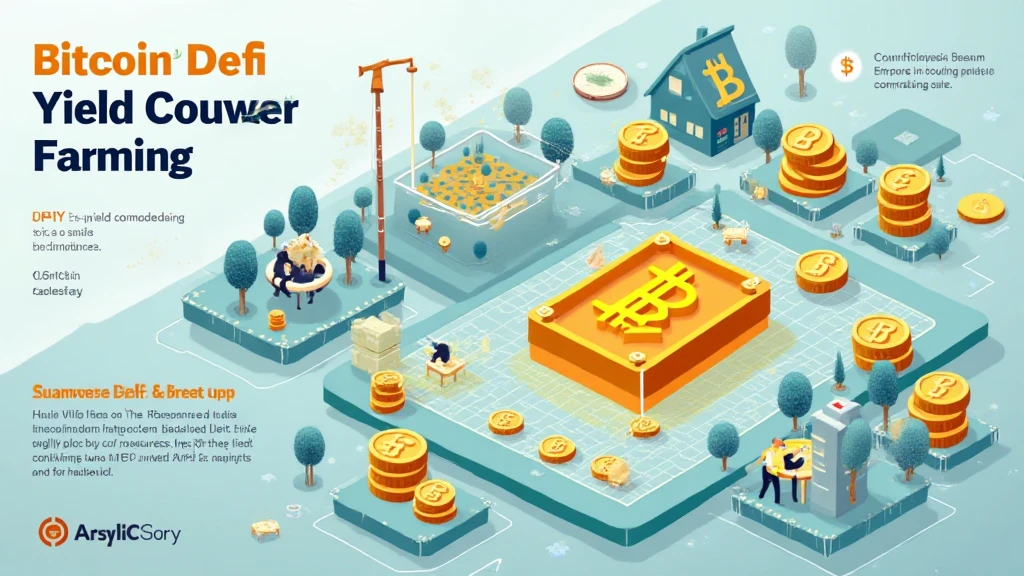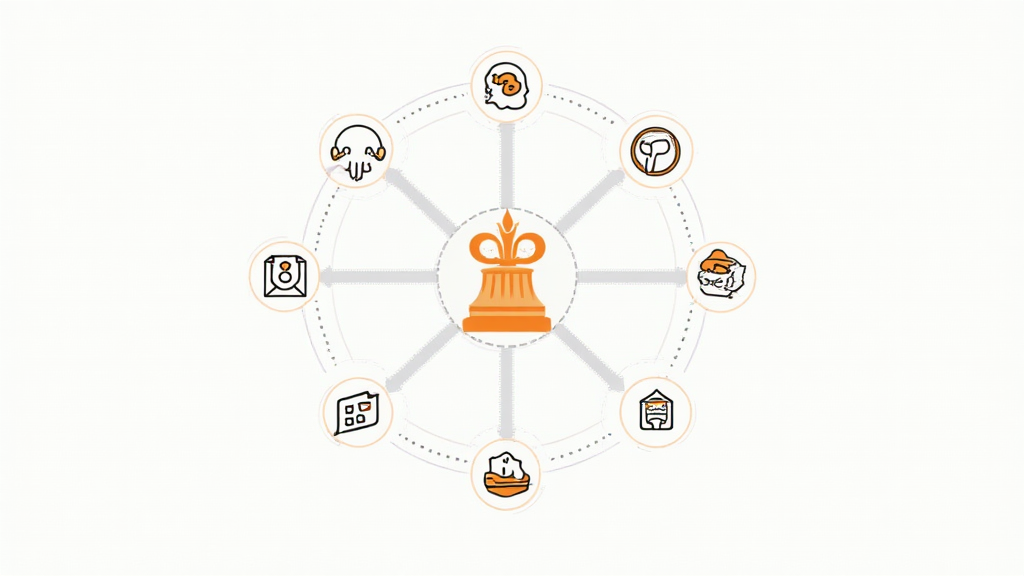Bitcoin DeFi Yield Farming: The Next Frontier in Financial Innovation
In recent years, the cryptocurrency landscape has evolved dramatically. As of 2024, an estimated $4.1 billion was lost due to hacks within decentralized finance (DeFi) platforms, highlighting the increasing need for robust security measures. With the continuous rise of Bitcoin and DeFi yield farming, it becomes imperative for investors and developers to understand the intricacies of this space and implement effective strategies to protect digital assets.
This article aims to shed light on Bitcoin DeFi yield farming, its significance, potential risks, and how it relates to Southeast Asia, particularly Vietnam. By understanding these concepts, stakeholders can make informed decisions in an ever-changing digital financial landscape.
Understanding Yield Farming in the Realm of DeFi
Yield farming is a practice where crypto holders lend their assets to earn interest or rewards, usually represented in various tokens. In the context of Bitcoin DeFi, yield farming allows users to leverage their BTC holdings for additional returns.

Here’s the catch: unlike traditional banking, DeFi platforms offer significantly higher yield rates due to fewer intermediaries. Investors can interact directly without the traditional barriers, but this freedom comes with its risks.
Yield Farming Explained: How Does It Work?
Yield farming works similarly to providing liquidity in financial markets. Users deposit cryptocurrencies into a smart contract, which automatically allocates their funds to various liquidity pools across different platforms. In return, they earn yield in the form of interest or governance tokens.
- Liquidity Pools: These are collections of funds locked in a smart contract. Users provide liquidity in exchange for rewards.
- Smart Contracts: These are self-executing contracts where the terms are written into code. They facilitate yield farming by automatically executing transactions based on predetermined conditions.
- APY: Annual Percentage Yield indicates how much money can be made in a year. Higher rates are typically more attractive.
Overall, yield farming offers an engaging way for users to maximize their returns on investment. However, understanding the underlying risks is crucial.
Risks and Considerations in Bitcoin DeFi Yield Farming
While the potential for high returns is enticing, several risks must be considered before diving into yield farming:
- Smart Contract Vulnerabilities: Bugs or exploits in smart contracts can lead to significant losses.
- Impermanent Loss: This occurs when the value of assets in a liquidity pool decreases compared to holding the assets separately.
- Market Volatility: Bitcoin’s price and other cryptocurrency prices can fluctuate wildly, impacting yields.
Security Standards in DeFi: What to Watch For
avoiding vulnerabilities in DeFi platforms necessitates an understanding of tiêu chuẩn an ninh blockchain (blockchain security standards). These standards provide guidelines to protect against hacks and exploits.
According to Chainalysis 2025 findings, DeFi platforms that have integrated robust security measures have seen a drastic reduction in potential losses by up to 70%. These measures include:
- Auditing Smart Contracts: Regular auditing ensures that contracts are free from bugs and vulnerabilities.
- Multi-signature Wallets: These wallets require multiple approvals for transactions, adding an extra layer of security.
- Insurance Against Losses: Some platforms offer insurance to cover smart contract vulnerabilities.
The Growth of DeFi in Vietnam
Vietnam has witnessed a significant increase in cryptocurrency adoption, with user growth rates for DeFi applications astonishingly rising by over 80% in the past year. This surge indicates a growing understanding of decentralized finance concepts and a strong demand for innovative financial solutions.
Impact of Bitcoin DeFi in Vietnam’s Financial Landscape
As Vietnam embraces cryptocurrency, Bitcoin DeFi yield farming presents unprecedented opportunities for investors:
- Accessibility: DeFi allows individuals from all economic backgrounds to participate in wealth creation.
- Financial Inclusion: Many people in Vietnam lack access to traditional banking, making DeFi a viable alternative.
- Increased Investment Opportunities: Yield farming democratizes investment opportunities by providing wider access to various assets.
Navigating Bitcoin DeFi Yield Farming Strategies
As you set out to explore yield farming, here are several strategies to maximize your success:
- Research Protocols: Analyze each platform’s functionalities and risk ratings before investing, referring to credible sources.
- Diversify Your Investments: Don’t put all your assets into one farm; consider multiple projects.
- Stay Alert on Volatility: Keep an eye on price movements and be ready to adapt your strategy.
Tools like Ledger Nano X can help reduce hacks by securing your private keys. Always prioritize safety over speed when investing.
Future of Bitcoin DeFi Yield Farming: Trends to Monitor
Looking ahead, several trends will shape the future of Bitcoin DeFi yield farming:
- Interoperability: Multi-chain solutions will enhance compatibility between various DeFi platforms, leading to higher liquidity.
- Regulatory Clarity: As governments catch up, clear frameworks will likely emerge, promoting safer environments for investors.
- Institutional Adoption: Increased interest from institutional investors will likely lead to a more structured market.
The Importance of Staying Educated
Continued education on market developments and emerging trends is key to maintaining a competitive edge. Engaging with community forums, webinars, and educational resources will help you stay informed on the latest news.
To sum up, Bitcoin DeFi yield farming presents both opportunities and challenges. With the right knowledge and strategies, investors can navigate this complex landscape successfully.
Conclusion
In summary, Bitcoin DeFi yield farming is reshaping the financial landscape by offering innovative opportunities to earn yield on digital assets. However, it is essential for participants to educate themselves on the associated risks and security measures necessary for successful engagement. The rapid growth observed in Vietnam serves as a testament to the potential of DeFi, reinforcing the need for robust security standards and awareness.
As we advance into 2025, continued vigilance will be crucial for maintaining trust and safety within the DeFi sector. For anyone keen on maximizing their yield farming returns, leveraging the right strategies and tools is imperative. Remember always: secure your investments adequately.
For more in-depth resources and insights, check out hibt.com. Remember, this article is not financial advice; consult local regulators.
Author: Dr. Alex Tran, a seasoned blockchain consultant with over 15 published papers on decentralized finance, and has led audits for several high-profile projects.





